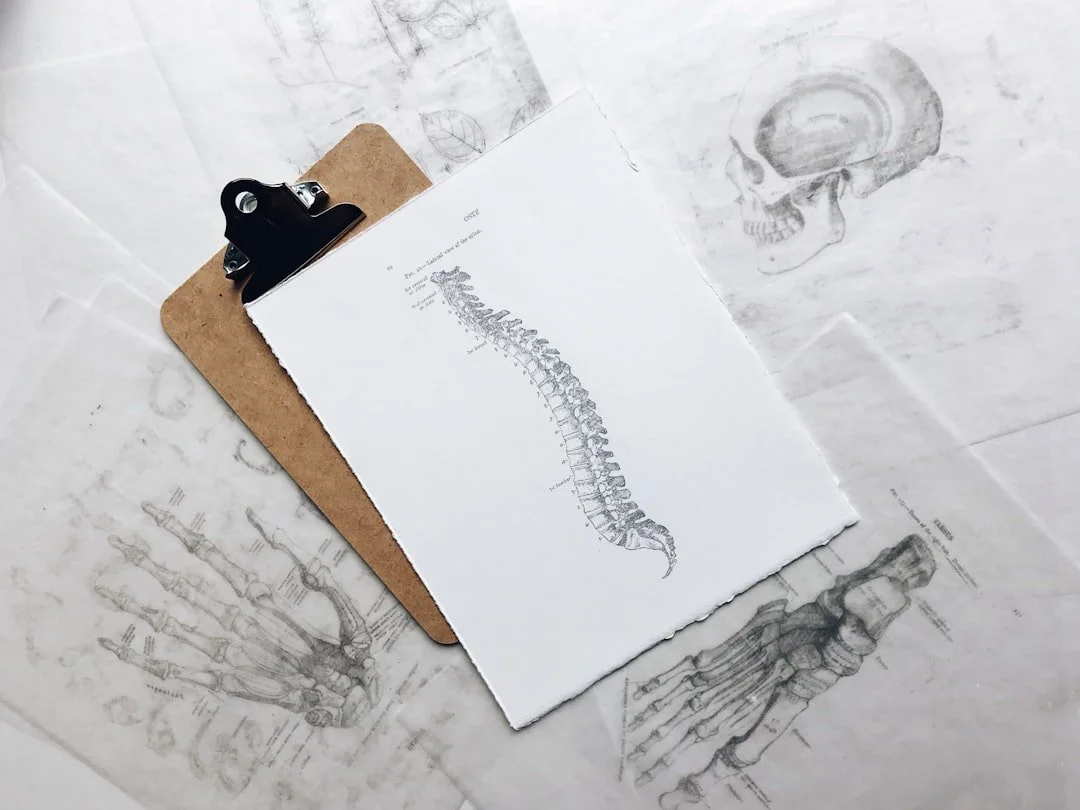Chiropractic Care in Petaluma, CA for Plantar Fasciitis
Plantar fasciitis can make every step feel sharp—especially first thing in the morning or after sitting. Many people in Petaluma want natural, drug-free relief that helps them stay active. At Titan Chiropractic, we focus on nervous system regulation and coordinated movement patterns so the foot, ankle, knees, and hips work together—and walking feels easier again.
Heel and arch pain often flare when the nervous system is caught in protective patterns—tightening muscles, altering gait, and amplifying pain signals. Our focus is on helping regulate the nervous system by identifying and correcting stress patterns in the spine that interfere with signaling—so the brain and body can coordinate more effectively from the foot up through the chain.
- Sharp heel pain with first steps in the morning.
- Stiffness after sitting; soreness after activity.
- Gait changes that ripple up into the knees, hips, or back.

How Chiropractic Care Can Support Plantar Fasciitis Naturally
The nervous system sets muscle tone and timing for every step. When signaling is clear, the foot loads and unloads smoothly; when it’s scrambled, the fascia and small foot joints bear uneven stress and pain signals can ramp up. Gentle, specific adjustments help calm the system and improve coordination so the foot can move more fluidly.
- Encourages calmer pain signaling and muscle tone.
- Supports smoother loading from foot to hip.
- Helps reduce morning pain and post-activity soreness.

Understanding Plantar Fasciitis and Daily Life
Plantar fasciitis can slow everything down—first steps hurt, errands feel longer, and workouts stall. These challenges reflect a nervous system reacting to strain with protective patterns that keep tissues tight and sensitive. By improving brain–body communication, chiropractic care can help the system downshift out of “protect and guard,” so walking and activity feel more natural.
- Morning “first-step” pain and stiffness.
- Pain after sitting or long drives.
- Frustration from limited activity or slower recovery.

How Subluxations Influence Foot Pain
- When subluxations (stress patterns in the spine) disrupt nervous system signals, protective tone and pain sensitivity can spike—keeping tissues tight and reactive.
- Scrambled signaling can alter gait timing and increase load on the fascia.
- Gentle adjustments support clearer control so steps feel smoother and less painful.
Think of walking like a drumline: when the conductor’s cues are fuzzy, strikes are mistimed and everything sounds harsh. Clearing the signals is like giving the drummer a clean beat—your steps sync up, and the strain eases.
Potential Benefits of Chiropractic for Plantar Fasciitis
- Fewer sharp first-step pains and easier walking.
- Calmer, more flexible foot and calf tissues.
- Better recovery after activity and improved confidence on your feet.
Scientific Evidence Related to Plantar Fasciitis
Evidence reviews describe outcomes of conservative care for plantar fasciitis, with case reports noting improvements during chiropractic-directed plans. While most research focuses on tissue-level strategies, our approach emphasizes nervous system regulation to support lasting change.
Narrative Review of RCTs on Conservative Therapies for Plantar Fasciitis (2006)
Summarizes randomized trials of conservative treatments for plantar fasciitis, framing non-surgical, non-drug options and timelines for improvement.
Case Report: Chiropractic Management of Pediatric Plantar Fasciitis (2012)
A pediatric case highlighting improvement during a conservative, chiropractic-directed plan—underscoring the value of early, coordinated care.
Our Approach at Titan Chiropractic
We look at your pain story, daily loads, footwear, and where/when first-step pain hits hardest.
We check for stress patterns that escalate protective tone and disrupt clean walking rhythms.
Adjustments support clearer signaling so the foot, ankle, knees, and hips can coordinate with less strain.
We monitor first-step pain, day-to-day walking, and recovery after activity—aiming for steady, lasting wins.
Frequently Asked Questions About Plantar Fasciitis & Chiropractic
How does chiropractic help plantar fasciitis?
By regulating the nervous system and clearing stress patterns that distort movement, chiropractic helps calm pain signals and restore smoother loading with each step.
What improvements do people commonly notice?
Easier first steps in the morning, less soreness after sitting or activity, and more natural walking patterns as tension eases.
Is care gentle and tailored?
Yes. We use specific, comfortable techniques matched to your sensitivity, activity level, and goals.
Can this help if my pain keeps returning?
Often, yes. Stabilizing nervous system patterns helps your body keep the gains you make, so relief lasts longer between flare-ups.
How soon might I feel a difference?
Many notice early changes in first-step pain; others build steadily over a few weeks as signaling and movement normalize.
Ready to see if chiropractic can help your plantar fasciitis?
Schedule your visit in Petaluma and explore gentle, neurologically focused care for easier steps and steadier days.
Schedule nowDisclaimer: We do not diagnose or treat conditions, diseases, or symptoms. Our care is centered on improving the neuromusculoskeletal system by addressing spinal subluxations and the subluxation complex. Any improvement in overall health or function is the natural result of restoring proper spinal alignment and supporting the body’s innate ability to heal itself. For medical diagnosis or treatment, please consult a licensed medical professional.
